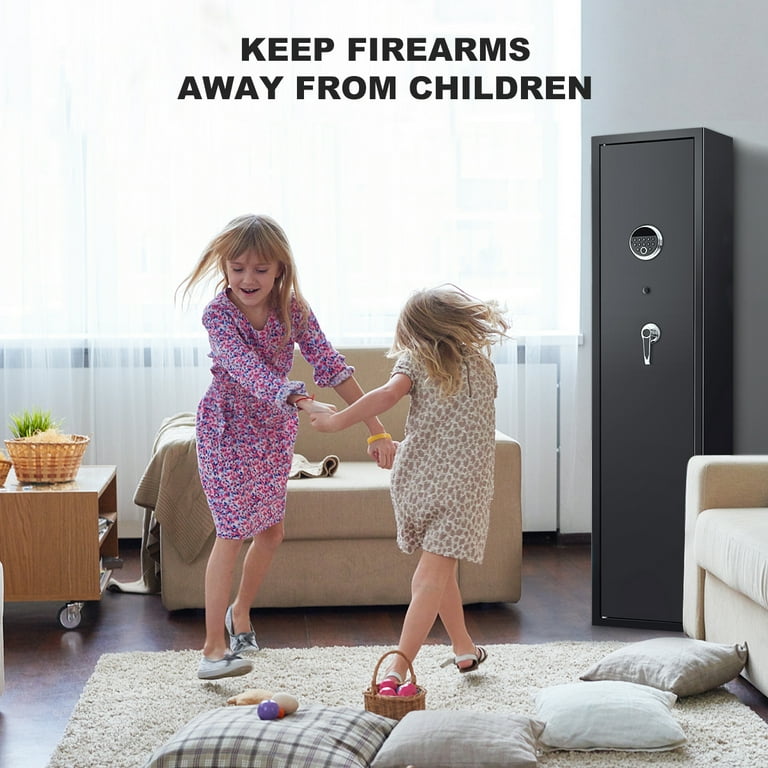Owning firearms comes with great responsibility. While it's essential to know how to use firearms safely, it's vital to store them securely. Gun safe serves as your first line of defense in protecting your family and preventing unauthorized access to firearms. This guide explains why safes are important, the different types, how to choose, install, maintain, childproof, and follow laws.
Why Gun Safes Matter
Gun safes matter for two significant reasons: legality and morality. From a legal perspective, many jurisdictions require firearm owners to securely store their firearms in a weapon safe. Non-compliance can result in severe consequences. Apart from legality, responsible gun owners have a moral duty to prevent access by unauthorized individuals, ensuring family and community safety.
Types of Gun Safes

Gun safes come in various types to cater to different needs and preferences. Handgun safe offers quick and secure access for self-defense firearms. Rifle safes, larger and spacious, accommodate long guns like rifles and shotguns.
Concealed safes conceal firearms in plain view. In-wall and floor safes save space and maintain discretion. You can customize modular safes to accommodate various firearm collections, making your choice dependent on your specific needs and collection size.
Factors to Consider
Choosing the right safe requires considering size, lock type, fire resistance, security rating, and access. Determine collection size, select lock type, and ensure fire resistance to match your needs.
Installation and Placement
Proper installation and placement of your weapon safe are crucial for maximizing security:
Bolt Down: Secure your safe to a solid surface like a concrete floor to deter theft.
Concealment: Hide your safe behind furniture or in a closet for added security.
Gun Safe Maintenance and Care
Even your gun safe needs regular maintenance to ensure its continued reliability.
Regular Inspection: Regularly check for wear, loose bolts, or issues affecting security in safes including housing rifles or long guns.
Cleaning: Maintain the interior and exterior by removing dust, dirt, and fingerprints, preserving your firearms' appearance.
Lubrication: Ensure the locking mechanism operates smoothly and prolongs its lifespan. Proper lubrication is crucial, whether for handgun or rifle safes.
Combination Change: Periodically alter your safe's combination to bolster security, particularly in safes safeguarding valuable firearms, including rifles.
Childproofing Your Gun Safe

Childproofing your gun safe is an essential step in firearm safety:
Child-Resistant Locks: Many safes come equipped with child-resistant locks to prevent unauthorized access by curious children.
Education: Educate your children about the dangers of firearms and the importance of never attempting to access them without supervision.
Gun Safe Laws and Regulations
Stay informed about the laws and regulations concerning gun safes in your area:
Local Variations: Laws and regulations can vary widely by region, so research and comply with the specific requirements in your locality.
Compliance: Ensure your gun safe meets legal standards for securing firearms, including those for rifles and shotguns.
In summary, responsible gun owners must prioritize secure firearm storage. Effectively safeguard your firearms and loved ones by selecting the appropriate gun safe, ensuring proper maintenance, and following local laws. It's not just a legal obligation but a moral duty that significantly enhances home security.
Ready to find the perfect gun safe to secure your firearms? Check out our selection of high-quality gun safes. The safety of your family is invaluable!

